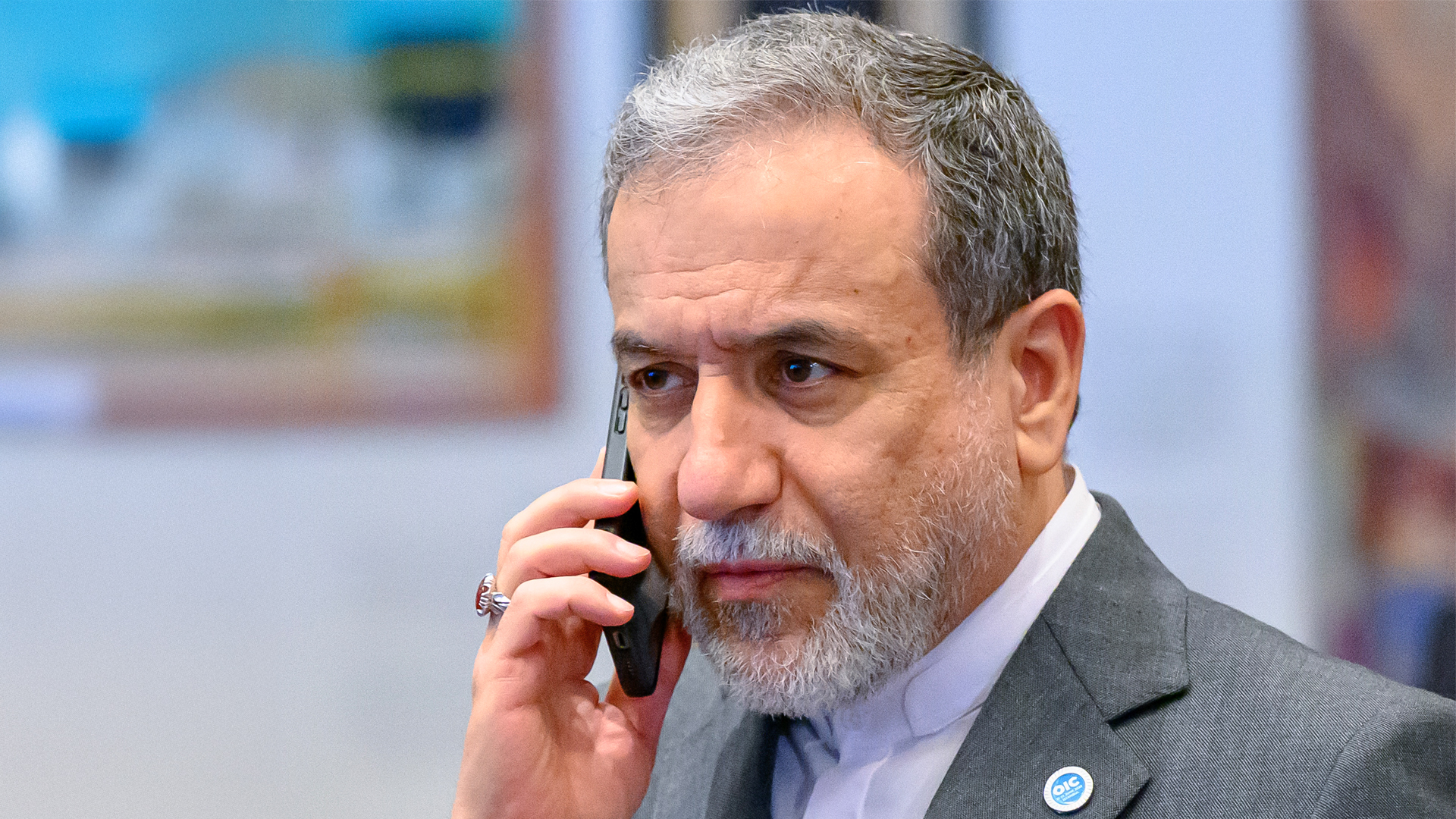Iran’s FM Calls for OIC Condemnation of Israeli Strikes, Reaffirms Commitment to Diplomacy
Iran FM Araghchi arrived in Istanbul for the OIC summit, urging condemnation of Israel’s strikes and calling for an end to aggression before resuming nuclear talks. He warned U.S. involvement would dangerously escalate the conflict, as Iran insists on its right to self-defense.

By Kamaran Aziz
ERBIL (Kurdistan24) — Iran’s Foreign Minister Abbas Araghchi arrived in Istanbul on Saturday morning, June 21, 2025, to participate in the emergency meeting of the Foreign Ministers of the Organization of Islamic Cooperation (OIC), following a series of high-level diplomatic engagements in Geneva, Switzerland.
Speaking to reporters upon arrival, Araghchi stated: “The main focus of the meeting will be to discuss Israel’s unlawful attacks on Iran, and we hope a strong and unified statement will be issued to condemn this aggression.”
He added that Iran was currently “exercising our legitimate right for self-defense against the act of aggression, which is done against us unprovoked and in a very brutal way.”
Providing further context to the timeline of events, Araghchi noted: “As everybody knows, we were in the middle of negotiations with the United States, and we were supposed to meet for the sixth round on 15th June, then all of a sudden Israelis decided to attack us on the 13th, only two days before the negotiations. It is obvious that they are against diplomacy, it is obvious that they don't want a peaceful settlement of this issue.”
Despite the breakdown in talks, Araghchi reiterated Iran’s willingness to return to the negotiating table under certain conditions: “We are absolutely ready for a negotiated solution for our nuclear program, as we did in 2015. You know, we had a deal with the P5+1 at that time. That was the result of negotiation, two years of negotiation. And then when we concluded the deal, the whole world celebrated. So it means that diplomacy can work. It worked in the past, and it can work in the future.”
However, he stressed that a return to diplomacy is contingent on an end to hostilities: “But in order for us to come back to diplomacy, the aggression should be stopped. It is obvious I cannot go to negotiation with the United States when our people are under bombardment, under the support of the United States. We have come, unfortunately, to the conclusion that the United States has been in this aggression from the beginning. You know, they deny, they keep saying that they are not involving. But we have many indications that they have been involved from day one.”
He warned that reports of possible U.S. participation in military operations alongside Israel would mark a significant and perilous escalation. “Unfortunately we have heard that the U.S. may join this aggression, that would be very unfortunate and I think that would be very, very dangerous for everybody.”
Araghchi also announced plans to hold a separate meeting with Turkish President Recep Tayyip Erdoğan, in addition to consultations with participating foreign ministers at the OIC summit.
This diplomatic outreach follows his meetings the previous day—Friday, June 20—with foreign ministers and representatives from Germany, the United Kingdom, France, and the European Union’s foreign policy chief in Geneva. Following those discussions, Araghchi reiterated in a press conference Iran’s stance on the current conflict: “We remain committed to exercising our legitimate right to defend ourselves.”
The ongoing war between Iran and Israel has now entered its second week, marked by daily exchanges of missiles and drone strikes. According to Israeli authorities, at least 25 people have been killed in Israel so far. In contrast, Iran’s Ministry of Health has reported that at least 430 people have been killed and more than 3,500 others wounded as a result of Israeli bombardments.